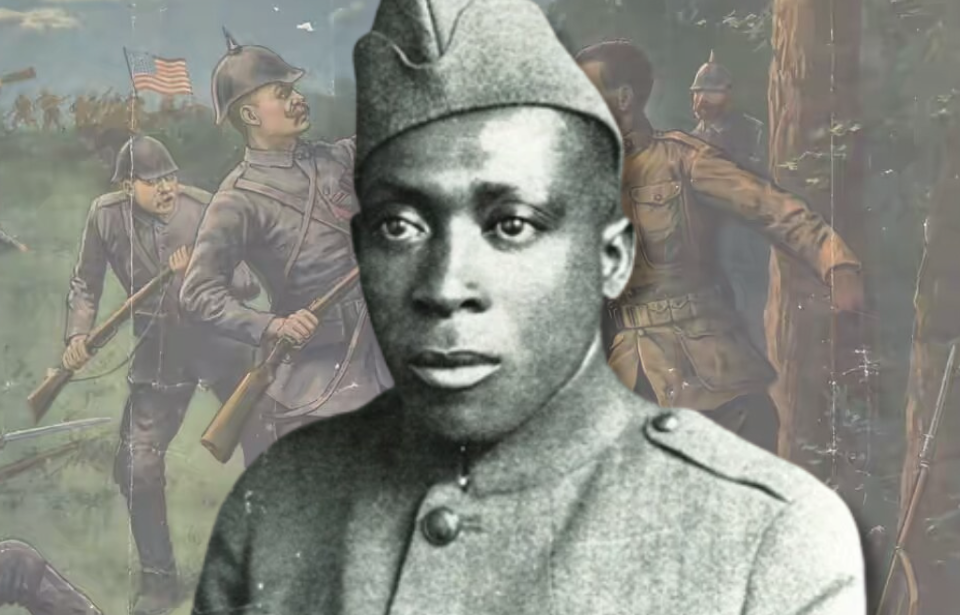While countless acts of courage are celebrated with awards and recognition, many heroic actions go unnoticed, often overshadowed by biases, political perspectives, or national loyalties. A compelling example is William Henry Johnson, a soldier from the first African-American unit in the US Army to engage in combat during World War I.
Referred to as Henry Johnson, he exhibited remarkable bravery by confronting enemy forces in close combat and saving a fellow soldier, even while facing overwhelming odds.
Henry Johnson enlisted in the New York National Guard
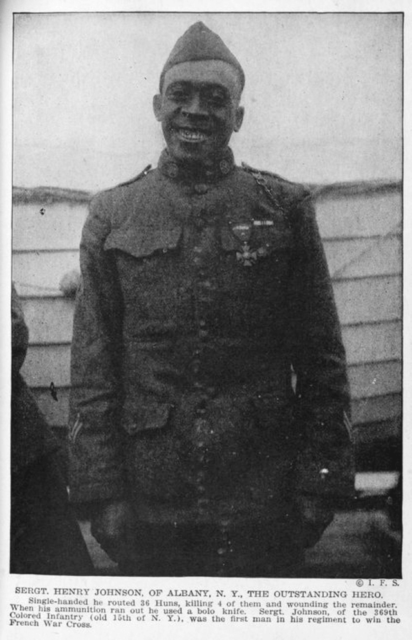
Henry Johnson’s early life is shrouded in mystery, even to himself. He believed he was born on July 15, 1892, in Winston-Salem, North Carolina, though this date remains unverified, as he provided different birth dates on official documents. During his teenage years, he worked as a railway porter, handling goods and luggage.
In mid-1917, Johnson joined the US Army after learning that the 15th Infantry Regiment of the New York National Guard, an all-Black unit, was seeking recruits. He and his comrades were sent to France, arriving in January 1918.
Assigned to the French Army’s 161st Division
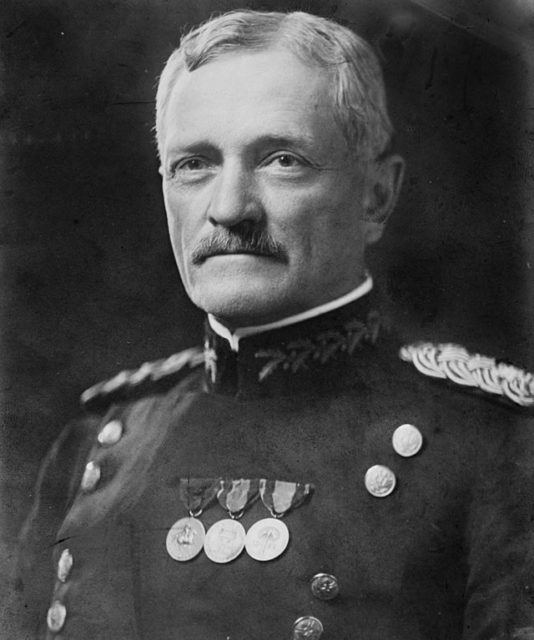
From the get-go, the eager regiment – at that point renamed the 369th Infantry Regiment and later becoming known as the “Harlem Hellfighters” – was relegated to menial tasks, such cleaning and moving goods. They were temporarily assigned to the 161st Division of the French Army by Gen. John J. Pershing. It’s believed the reason was that Pershing wanted to give African-American soldiers a chance to advance in leadership, which they couldn’t do in the segregated US Army.
The French Army had no such issue and gladly accepted the men as reinforcements, kitting them out with equipment. Johnson and his regiment were deployed to Outpost 20, near the Argonne Forest.
A nighttime raid was Henry Johnson’s chance to be a hero
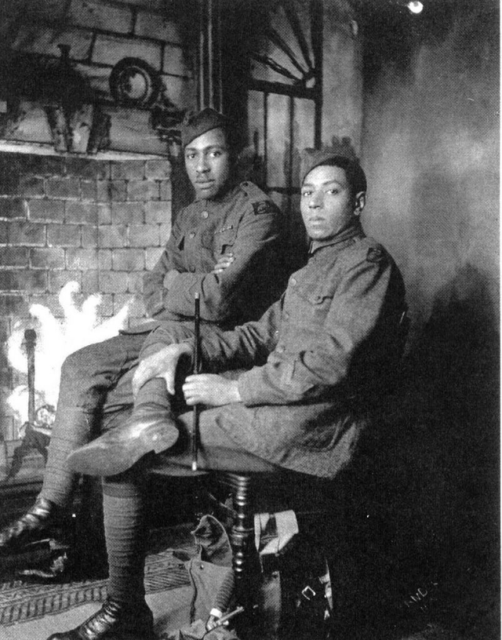
On the night of May 14, 1918, Henry Johnson had no way of knowing that he was about to encounter the fight of his life. He and his comrade, Needham Roberts, were stationed on sentry duty at the edge of the forest, with their shift scheduled to end at midnight.
Two soldiers came to relieve them, but Johnson, sensing their lack of experience, chose to remain with them rather than leave. Roberts went back to his trench to rest, but it wasn’t long before Johnson heard the sounds of movement, rustling, and the unmistakable snip of wire cutters.
German troops attack
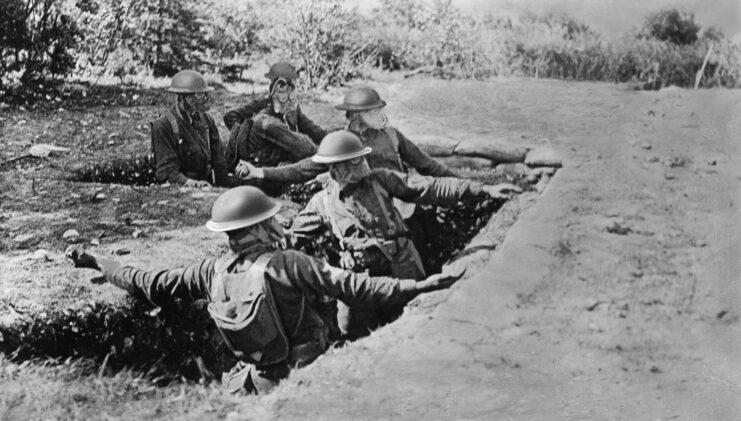
Once the grenades were depleted, Johnson turned to his rifle, continuing to fight despite injuries to his side, head, and hand. When his rifle jammed, he used it as a club to fend off the attackers.
In a desperate struggle for survival, Johnson received a heavy blow to the head. Falling beside his broken rifle, he quickly rose to his feet and drew his 14-inch bolo knife. With precise and fierce strikes, he killed one enemy with a single blow. Spotting the Germans attempting to drag away the wounded Roberts, he charged at them, wounding one in the ribs and forcing them to retreat.
Johnson saved him and Roberts’ lives
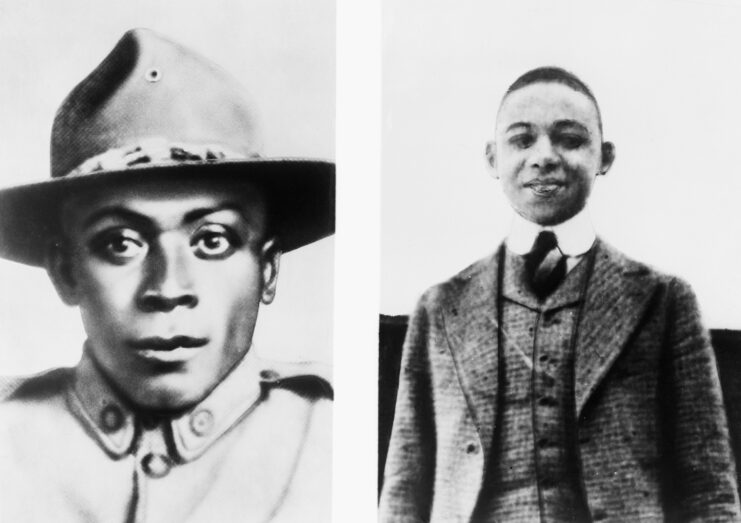
After an hour of fierce fighting, reinforcements showed up, forcing the Germans to pull back. Johnson’s extraordinary courage guaranteed that both he and Roberts made it through, with quick medical care provided for their injuries.
As the first light of dawn lit up the scene, the aftermath of the clash became visible: their wounds, their gear, and four fallen German soldiers. Johnson is said to have wounded another 25 to 30. His heroic stand quickly became the talk of the town, earning him a promotion to sergeant and the moniker “the Black Death.”
Awarded the Medal of Honor nearly a century later
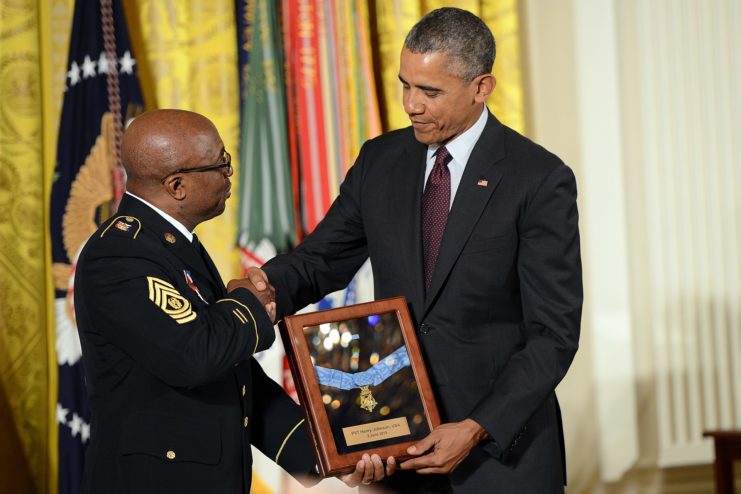
For his efforts, the French awarded Henry Johnson the Croix de Guerre, one of their highest awards, before sending him back to the US. At the end of the First World War, the Harlem Hellfighters participated in a victory parade, with Johnson upfront. Still, they were not allowed to parade alongside the White troops.
After such an ordeal, many soldiers would return home to a hero’s welcome, which Johnson did, to an extent, but it was a bittersweet achievement. Many publications quickly glossed over his race, or avoided mentioning it at all. He gave his all and returned to a country celebrating his efforts while still regarding him as an inferior citizen.
More from us: John Simpson Kirkpatrick: The ‘Man with the Donkey’ in Galipoli
New! Want to become a trivia master? Sign up for our War History Fact of the Day newsletter!
The final years of Johnson’s life mirrored the first, slipping into obscurity after the war, while receiving disability payments from the US government. It remains unclear how much his injuries affected his later life and job opportunities. He passed away on July 1, 1929 of myocarditis. The full extent of his actions weren’t appreciated until he was posthumously awarded the Purple Heart in 1996 and the Medal of Honor by then-US President Barack Obama in 2015.
